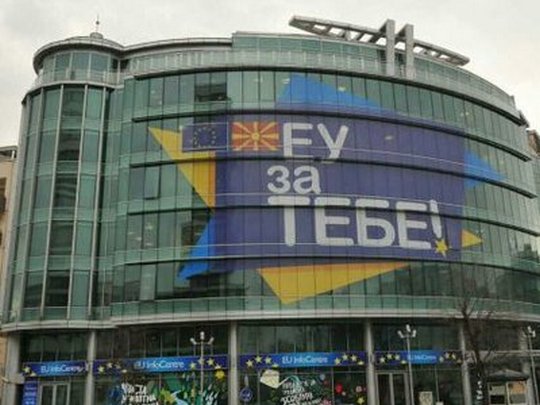
The general context remains favourable to media freedom and allows for critical media reporting despite the serious findings that are part of this report. The crisis caused by Covid-19, where the tension in the sector increased, had a special impact on the work of journalists. Attacks on journalists have increased, while the promised zero tolerance has not been achieved as the level of impunity has remained high. The promised reforms in MRT and the Media Agency remained unfulfilled for another year. Another conclusion is that it is necessary to continue the efforts to accept self-regulation in the media that would be followed by concrete results and that would maintain the professional standards of journalism, as well as to ensure greater transparency in terms of media advertising by state institutions and political parties.
MRT with the smallest budget and expired mandate of advisors as is the case in the Media Agency
Financial independence as well as the merit system for the management selection in this medium are two basic preconditions for the independence of the public service.
The report says the authorities, for their part, need to intensify efforts to reform MRT, ensuring its independence and financial sustainability. The budget of MRT is 13.1 million euros as noted in the Report and it is the lowest budget in the last ten years that this medium has. The Public Broadcasting Service has adopted a five-year development strategy, but the reform process has been aggravated by delays in appointing new members of its Program Council and the Council of the Agency for Audio and Audio-Visual Media Services.
The small market and socio-economic insecurity of media workers remains a serious problem
Additional economic problems were caused by the crisis with Covid – 19. The report emphasizes that the media were included in the aid package, but the labour rights of journalists still remain a serious challenge. Media financial sustainability and available funding continue to raise concerns about media integrity and independence. Additional measures are needed to support professional and investigative journalism. According to a survey conducted by the Independent Trade Union of Journalists and Media Workers, which showed that 23% of media workers do not have health and social insurance, 19% said that media management does not allow workers to form a union. Low incomes, as well as employers’ disregard for labour law, are common and ongoing challenges for journalists. Due to poor working conditions, journalists and media workers are exposed to self-censorship.
In the section on recommendations, it is noted that those adopted during 2020 remain valid, but it is emphasized that next year, the country needs to revise the legal framework in the field of media in line with EU law and European standards, as well as to finalize the composition of the Program Council of MRT and the Council of the Media Agency. As a reminder, the mandates of the members in both bodies have expired and the Assembly did not start the procedure for election of new members, although on two occasions there was a call for interested candidates to apply.
Threats and violence against journalists increase and zero tolerance resulted in double-digit number of more serious incidents
In this part it is necessary to implement a zero-tolerance approach regarding intimidation, threats and acts of violence against journalists in the exercise of their profession and to ensure that the perpetrators are brought to justice. Cases of physical and verbal violence and threats against journalists and media workers have increased, while their working conditions, especially workers’ and social rights, remain difficult.
The report also specified statistics on attacks on journalists. In 2020, 10 cases of intimidation of journalists were registered in the Ministry of Interior, while AJM registered 2 physical attacks and 12 different forms of verbal threats to life and other intimidation. At the beginning of 2021, one physical attack and one death threat were also registered. It is recommended that law enforcement agencies and the Public Prosecutor’s Office monitor incidents with journalists, but better coordination is needed between the various institutions to act more quickly on reported violations and prevent impunity for perpetrators. Draft amendments to the Criminal Code are proposed, in order to strengthen the protection of journalists and other media workers by placing them in the group of professions that will receive additional protection when exposed to attacks and threats due to the nature of their work. This recommendation is partially fulfilled because the amendments to this law have not yet been voted on in the Assembly of NM.
It also goes on to say that the Association of Journalists as well as international media organizations have seen an increase in threats against journalists by politicians and public officials, as well as online harassment and verbal attacks, including attacks on social networks.
The paid political program remains a problem
The report also addresses the issue of paid political programming, saying “the possibility of political parties using state funding for political advertising in the media remains a concern among media associations about the possible impact on media independence.” Hate speech is illegal both online and offline, but it remains prevalent on the Internet.
Biljana Nasteska – Kalanoska
Dragan Sekulovski
Association of Journalists of Macedonia, October 25, 2021, Skopje
photo: mia.mk